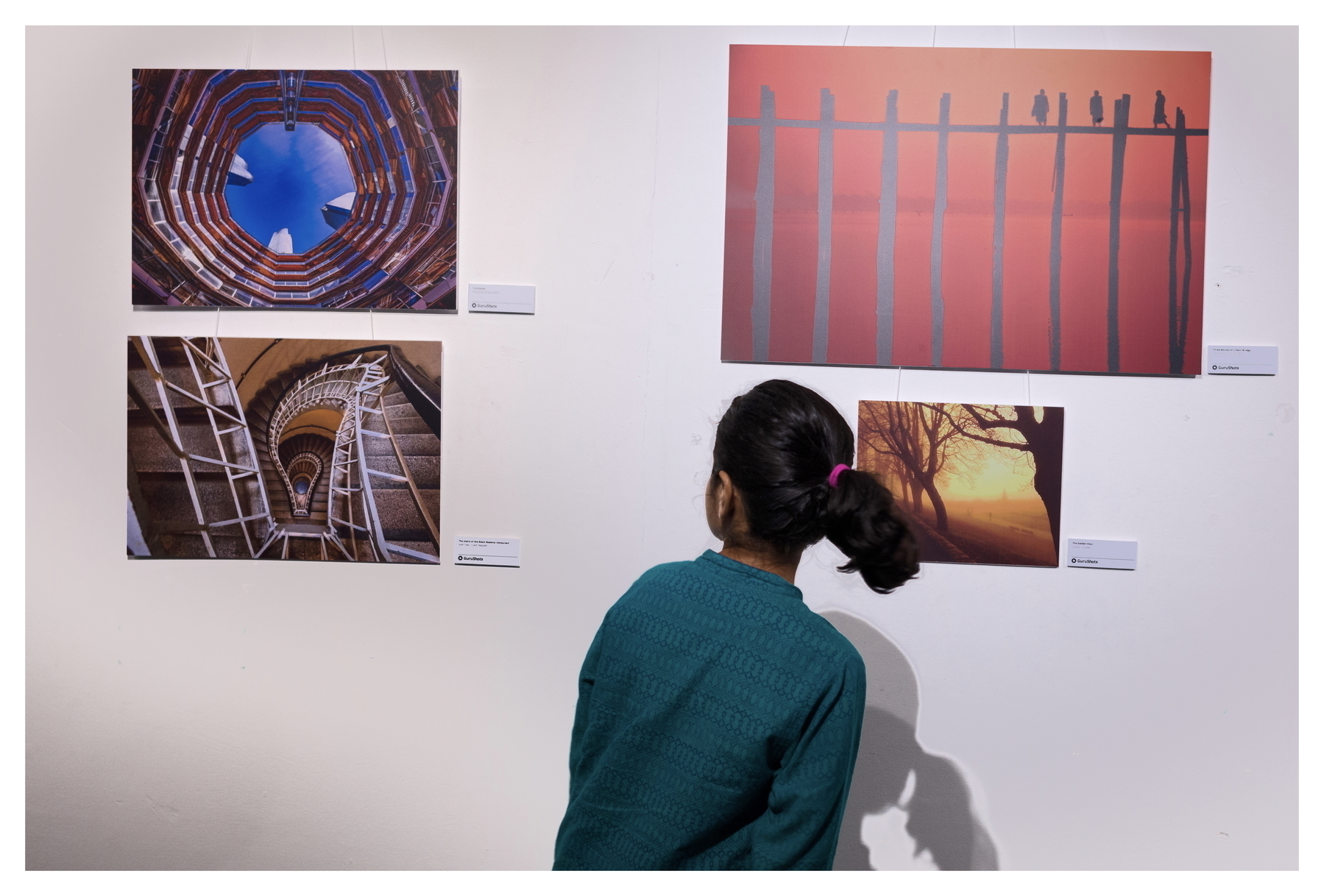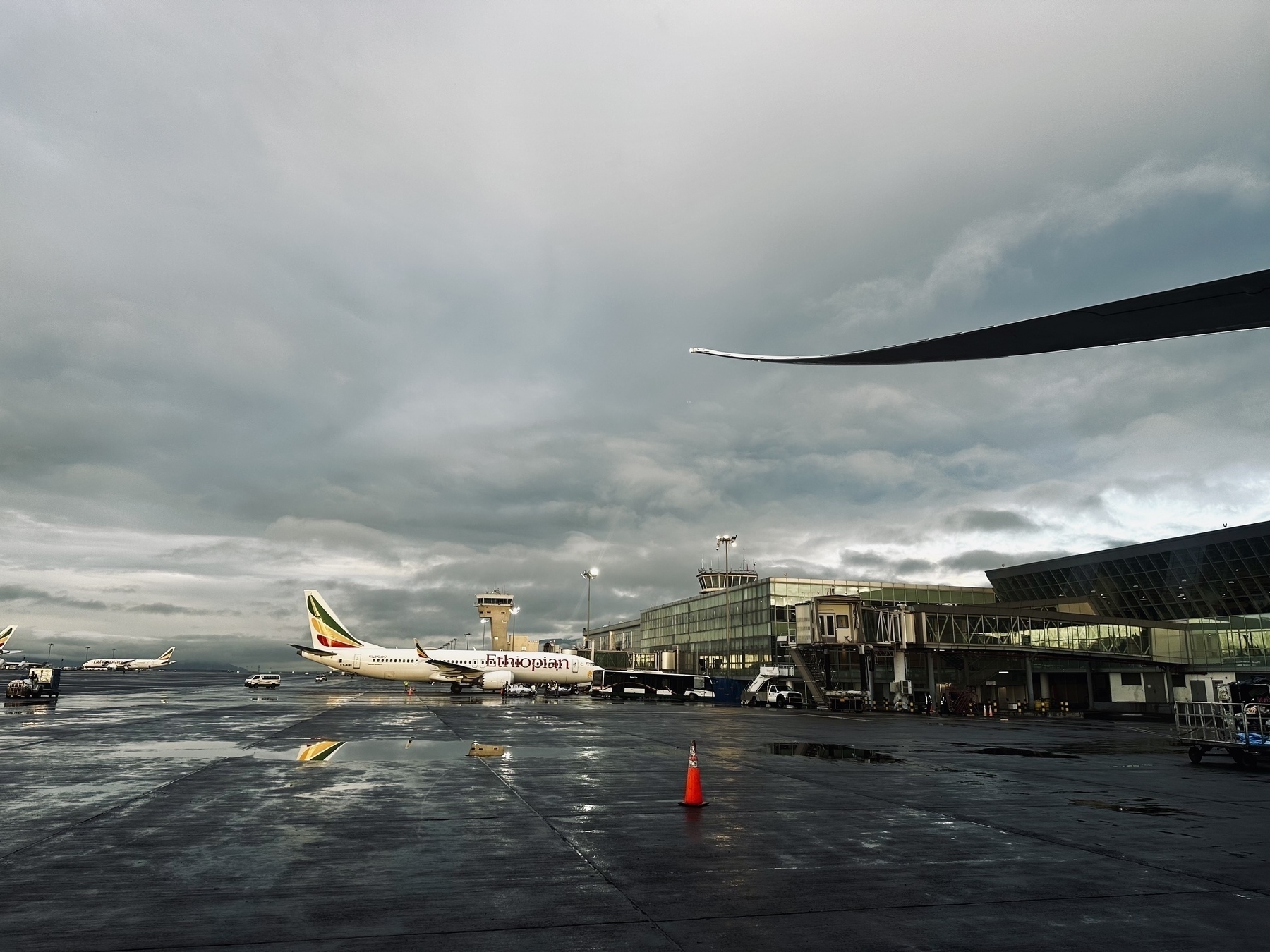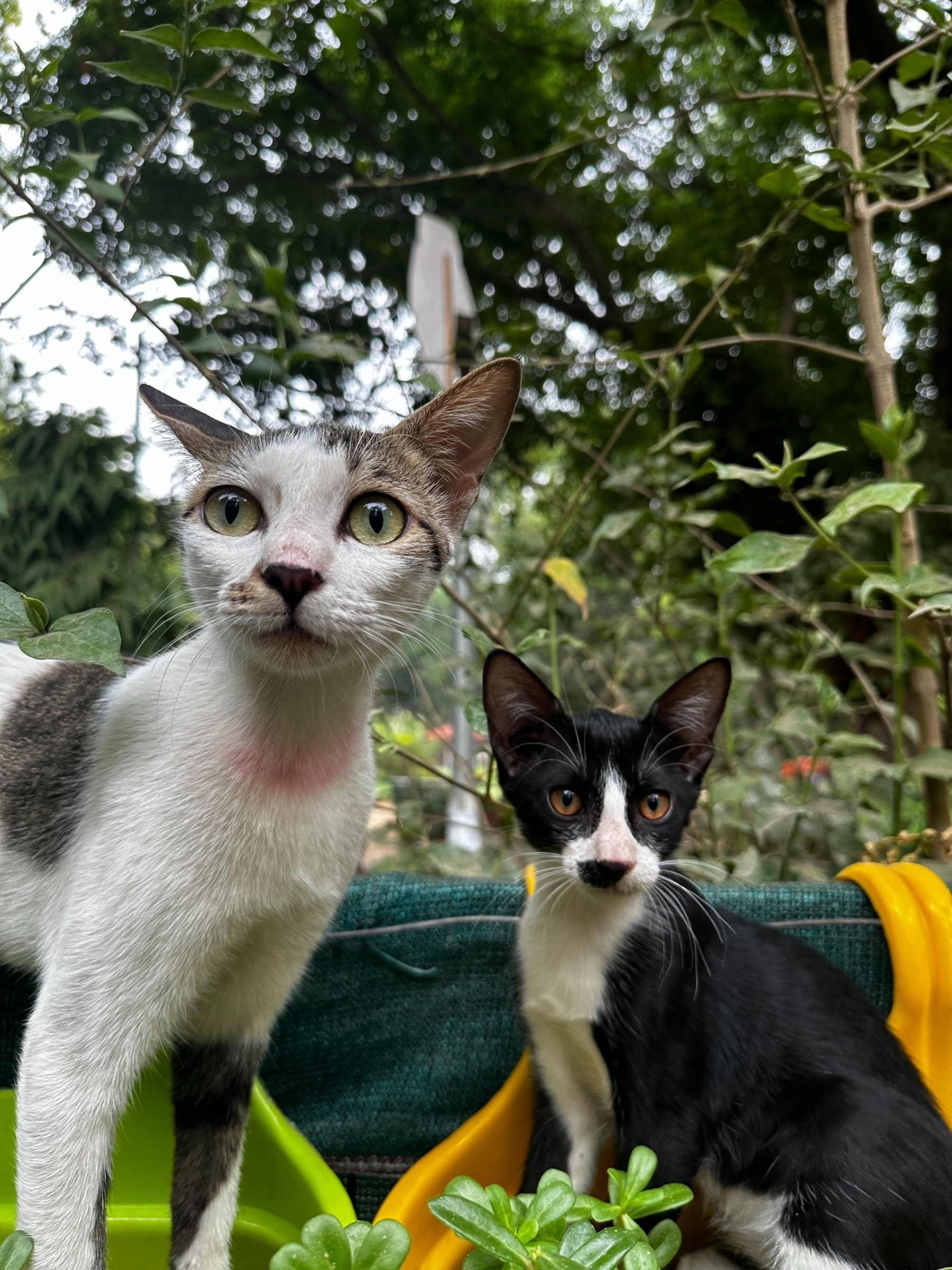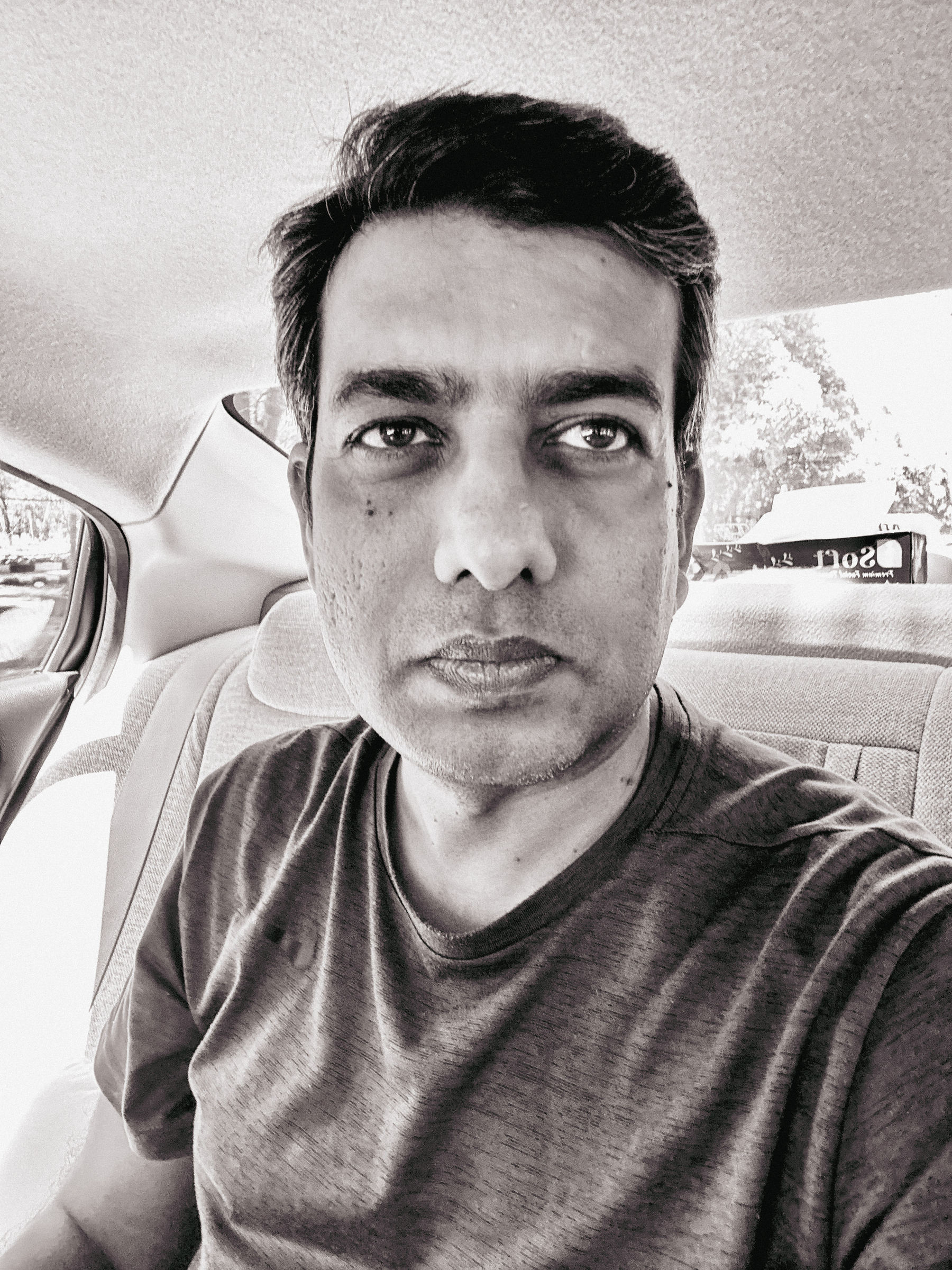The little one exploring the photo exhibition at India Habitat Centre.

Prophet Song by Paul Lynch

Dystopian fiction has become a difficult read for me at this stage of my life. The hopelessness and suffering depicted in these stories trigger a visceral reaction that’s hard to shake off. It’s particularly difficult when my own work exposes me to a future that feels all too dystopian for many people I connect with and care for: underprivileged individuals and people with no agency.
Paul Lynch’s Prophet Song is one such book. It’s a chilling narrative that forced me to pause, take a deep breath, and remind myself that I’m reading fiction. Lynch’s Ireland is a near-future dystopia where a mother of four is left reeling after her trade unionist husband is taken by a totalitarian regime. His writing, devoid of paragraph breaks or traditional dialogue presentation, creates an immersive experience that places you directly beside the protagonist as she faces her harrowing reality.
The story begins with the arrest of Larry Stack, a teacher and union leader. His wife, Eilish, is left to cope with the increasingly dire situation as his colleagues and friends vanish one by one. Despite each day growing darker, Eilish clings to the hope that things will return to normal – that Larry will come home and her children will go back to school.
Lynch’s prose is unflinching, mirroring the protagonist’s escalating fear and despair. It’s a testament to his skill that the story resonates so deeply and the future it paints feels uncomfortably imminent.

Sweet Bean Paste is one such a sweet read. Absolutely loved this book for its simplicity, story and characters. And, it was a memorable read for some other reason as well- the beautiful bookmark created by Ameya for this book.
A rainy morning at Addis Ababa airport

After a lot of justification finally pulled the plug! Leica M-11P. And the test driving it to get used to the rangefinder focusing.
The Budding Photographer

Love And Other Thought Experiments
There are several books that are often categorized as ‘genre-bending,’ but this one should be the gold standard to judge whether the term has been justifiably applied to a book. “Love and Other Thought Experiments” by Sophie Ward was longlisted for the Booker Prize in 2020, which is how it made a place in my reading list. This debut novel by Sophie Ward is a humane and beautifully crafted exploration of some painfully intriguing philosophical questions, a glimpse of the dystopian future of our planet, and a vivid landscape of human relationships. Personally, this is a novel that requires faith in the author’s capability (and the judgment of the Booker Prize jury), and once you are about halfway through the novel, it shows that your faith has been paid back.
The story starts with a couple, Rachel and Eliza, planning a baby, but Rachel believes that an ant has crawled into her mind. She is not sure if Eliza believes this, but she is sure that the ant is there inside her. Despite her apprehensions and trust issues with Rachel (that she does not believe that there is an ant inside her brain), they have a child, Arthur… and you get immersed into their life thanks to Sophie Ward’s evocative writing. But this book is not any typical fiction book as the story soon meanders into different timelines, parallel universes, dystopian sci-fi, and on the way makes us go through some of the most popular philosophical thought experiments.
Each chapter starts with a thought experiment and takes the story forward, but you never feel lost. There are some pleasant surprises as the ant and an AI also become narrators, taking the story forward. The author’s deep understanding of human emotions, relationships, and philosophy (she is an actress and holds a PhD where her research explored “thought experiments in philosophy of mind and the use of narrative in philosophy, looking at issues of consciousness and AI, and the meeting between literature and philosophy”) shines in her prose and the plot.
Personally, I really liked the integration of the ‘thought experiments’ in the plot, and it was quite rewarding to put down the book after reading a chapter and think about the connections between the thought experiments and the chapter. The following are the thought experiments/philosophical puzzles that are presented in the book:
- Pascal’s Wager: One of the most popular thought experiments where Pascal argues that we should believe in the existence of God even though there is no proof.
- Prisoner’s Dilemma: The famous game theory thought experiment that explains why we might not cooperate with each other even when it is the best option for us.
- “What Is It Like to Be a Bat?”: Nagel presented a thought experiment on the concept of consciousness in this essay. He argues that we can know all about a bat’s brain and behavior, but we will not figure out what it is like to be a bat.
- David Chalmers – Philosophical Zombies: The concept that there is more to mind than brain. The philosophical zombies can be exactly the same as humans but will not have conscious experience.
- “What Mary Didn’t Know” – This thought experiment by Frank Jackson explores the nature of knowledge and subjective experience.
- The Chinese Room – This John Searle‘s thought experiment emphasizes that a computer can never truly understand the language and comprehend like us. Searle imagines that he is in a room full of Chinese symbols where he can rearrange and manipulate the Chinese symbols, but he does not understand them. Similarly, computers can perform the task without understanding what they are doing.
- Twin Earth – Hilary Putnam imagines two identical Earths. These two planets are identical in every way except that the other Earth has no water. It has something similar to water superficially but has a different chemical composition. This thought experiment explores semantic externalism and the concept of ‘meaning.’
- Plutarch’s Life of Theseus – If you replace each part of a ship one by one over time, is it a new ship or the same ship? This is the thought experiment and paradox about an object whether the object remains the same if all parts of objects are replaced one by one.
- Descartes’ Demon – The famous line ‘I think, therefore I am’ is the result of this thought experiment. Descartes concluded that even if a demon could deceive him about everything and control all his senses and how he perceives the world, the demon could not make him doubt his existence as a thinking being.
- Gilbert Harman’s Brain in a Vat – If we connect a living and functional brain (increasingly possible with the success of Neuralink) with a computer and simulate the external world, will we ever know the reality?
Overall, a great book for anyone looking to explore beyond the usual.

Finished Reading : Love and Other Thought Experiments by Sophie Ward 📚
Kiki and Jenny

Someone is amused that my coffee came before her cake!

Apart from our own elections here, the other election that has intrigued me is that of Mexico. Claudia Sheinbaum is the new president elect. I am looking forward to what a leftist, feminist, climate scientist can do with an unprecedented public support. #mexicoEłections
A quick trip to Kathmandu after a decade! Although did not get to do anything beyond the back to back meetings but did manage to go to Pashupatinath temple! The place has changed quite a lot after the earthquake.

European Carbon Market – It Works!
Carbon markets, often used to describe the trade of carbon credits (mostly trade of voluntary carbon credits), is one of the least understood mechanisms and a polarising topic among climate activists. But Carbon markets are much more than just trade of carbon credit that you might have heard from someone talking about making money by planting trees or selling credits from a biogas plants or from an ‘improved cookstove’ projects. Carbon market is one of the most effective way of implementing result based financing or pricing the carbon (in other words: making polluters pay).
While the debate on carbon market and its different implementation frameworks is still on, the European carbon market and carbon pricing mechanism does provide evidence that mechanism works if implemented properly.
Read more here.. https://www.economist.com/europe/2024/04/25/carbon-emissions-are-dropping-fast-in-europe

Climate Action - Slow and Inadequate
As I interact with people who are not immersed in the climate discourse, it is surprising that they believe that there is ‘too’ much focus on climate action. They believe that with this kind of ‘intense focus’ on climate action, we are already doing a lot and will be able to manage this.
Unfortunately, we are nowhere on the path to achieve our climate goals. The emissions increased post the dip in the pandemic years. We were at 57.4 GtCO2e in 2022. (See the graph below from UNEP Emission Gap Report 2023).
And even if we meet all our existing climate goals (Nationally Determined Contributions – NDCs set up countries) we will fall short of the 2030 target by 11 GtCO2e (if we want to keep the global warming below 2 degree).
Many of us are familiar with the data, but there is a limited understanding of climate change and climate action among the general public. Mainstream climate discourse is urgently needed.

A friend suggested that I should do a podcast or a video shorts about the books that I recommend instead of blogging or writing on my website. His logic: it is easier to listen the podcast and watch videos than reading the written content on a website.
I found it ironical that people who are looking to read books (listening audio books doesn’t count) are saying that they do not like ‘reading the written content’ and would like a short reel or video to know more about a book!!
Wanting: The Power of Mimetic Desire in Everyday Life by Luke Burgis
“Ultimately, it is the desire, not the desired, that we love.”
― Friedrich Nietzsche
“Wanting: The Power of Mimetic Desire in Everyday Life” is a fascinating dissection of how we desire things or non-things. This book is a great introduction to Rene Girard’s work in general and mimetic theory in specific.
Last year, I decided to read Rene Girard and picked up “Things Hidden Since the Foundation of the World” to understand his overwhelmingly comprehensive treatise of thinking on desires, violence, culture, rituals, religion.. The list is just a glimpse of the width that he has covered as a philosopher.
So when Luke’s Wanting came out I immediately picked up this book to get more personal perspective from a modern-day entrepreneur (Luke is an entrepreneur and founder of four companies) who explored the mimetic desire theory from his personal experiences and leveraging developments and anecdotes from modern businesses.
Luke’s writing style and extensive use of examples to make us familiar with the mimetic desire make it a very interesting read for even those who are not so used to reading philosophical books.
If you are wondering what is this memetic desire and why you should even care about reading a book on this: mimetic desires are those desires that originate not because of any physical or biological needs but because other people seem to desire them.
Luke provides some great advices on managing our desires and understanding who are our role models that are dictating our behaviors. One of the easiest way to figure out who is our role model and influencing our desire are often the people whose success makes us feel sad or inferior.
But these theories are not only philosophical constructs validated by the historical anecdotes and stories. Burgis finds the scientific explanation to our vulnerability to mimesis.
What Girard calls mimetic desire might have some neurological basis in mirror neurons, but mimetic desire is a mysterious phenomenon that can’t be reduced to mirror neurons alone.
Luke Burgis
…They discovered that a specific area of a macaque monkey’s brain activates when it sees an adult pick up a peanut—the same area that lights up if the monkey picks up a peanut directly.
Luke Burgis
The book also has a really useful glossary in the end and a reading list for those who want to explore more. Please go ahead and pick this one up to explore Rene Girard, mimetic desires and how you can resist mimetic desires.
Three Steps to Unlock Climate Finance
Three steps to unlock climate finance for developing nations:
1. Strengthen institutions: Help developing countries build capacity to manage funds effectively.
2. Attract private investment: De-risk projects & create incentives to bring in private capital.
3. Proactive focus on adaptation: Ensure funding reaches those most vulnerable to climate impacts.
Let's invest in a more sustainable future, together! #ClimateAction #ClimateFinance #GreenInvestment
Two decades of blogging and this blog
Two decades can have a transfigurative impact on our memories. Trivial moments morph into bittersweet nostalgia, while monumental events fade into relics of the past. Starting this blog was one of those seemingly trivial acts back in 2004, but reflecting on its origins and the occasional old posts reveals a montage of life events that now feel both incredulous and utterly random.
I first used a computer and the internet in 1998-99. As a young person in a small town in Bihar, this felt like winning the lottery. At the time, I had no idea how privileged I was or how this access would reshape my entire life. Cursed with an insatiable curiosity, I made the internet my playground of discovery – a window to a world far beyond my imagination. I immersed myself in emerging web and internet technologies and the thrilling tech-pop culture blossoming across Europe and the US.
My early days on the internet were all about personal blogs and forums. While the golden era of blogging spanned 2000-2010, the first blog was published as early as 1993. Justin Hall, who started posting on his personal website that year, is regarded as the first personal blogger. He was already known in tech circles through bulletin boards and chat forums like mIRC. By 2000, personal blogging exploded, connecting like-minded strangers worldwide. Personal blogs had a very effective discoverability mechanism: links to other blogs. Roaming around, I stumbled upon pioneering bloggers and tech influencers like Kevin Kelly (the most interesting man alive and perhaps my biggest blogging inspiration), Ben Trott (TypePad founder), Matt Mullenweg (WordPress co-founder), and later, economists like Tyler Cowen (Marginal Revolution) and Tim Ferriss. The list goes on!
By 2003-04, the Indian blogosphere was booming. My inbox buzzed with emails – friends, acquaintances, even strangers – excitedly sharing their new blogs or latest posts. It was a wave of creativity and connection, and I was swept up in it. My own blog started as a jumble of personal updates and reflections, lacking any clear purpose. Perhaps a mix of homesickness and a desire to connect with my growing online social circle (from forums and websites) fueled its creation. Soon, I added a separate blog just for sharing IIFM campus updates and became part of b-school blogging groups. Many well-known figures today were blogging from various campuses across India. This era also saw bloggers banding together to challenge figures like Arindham Chaudhuri of IIPM (Fury over a blog | Latest News India – Hindustan Times: https://www.hindustantimes.com/india/fury-over-a-blog/story-SGKxCQJzF65KdA1XwZOIjJ.html). It was a moment when bloggers like Rashmi Bansal and Gaurav Sabnis brought mainstream media attention to the Indian blogosphere.
My own blog went through many existential crises and transformations as life progressed. The private section of the blog became more active than the public posts. Irrepressible personal opinions, reflections, and rants were relegated to drafts or the private section, while sanitized, politically correct updates were published to keep the public page alive. It was no longer a personal blog but rather a space for sharing updates about professional life and keeping track of the books I was reading.
Now, as this blog turns twenty, it has become a treasure trove of nostalgia, a witness to a journey that began with the insecurities of a middle-class youth figuring out his future to frustrations of a middle-aged man grappling with the future his child (and other children) will inherit in this fragile, almost post-truth world.
#Delhi has air pollution.. #Bengaluru has water scarcity.. #Chennai has flood problem.. urban development and our policies need some revisit.
